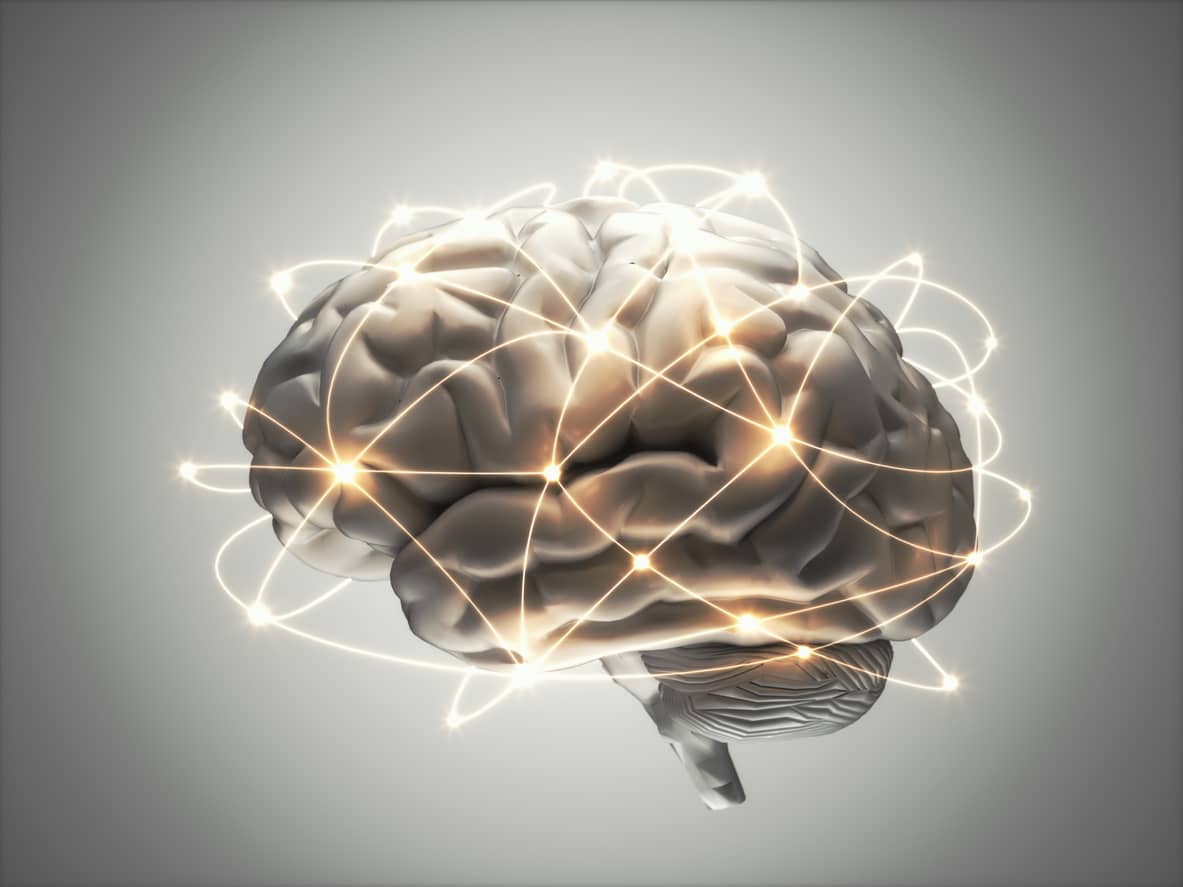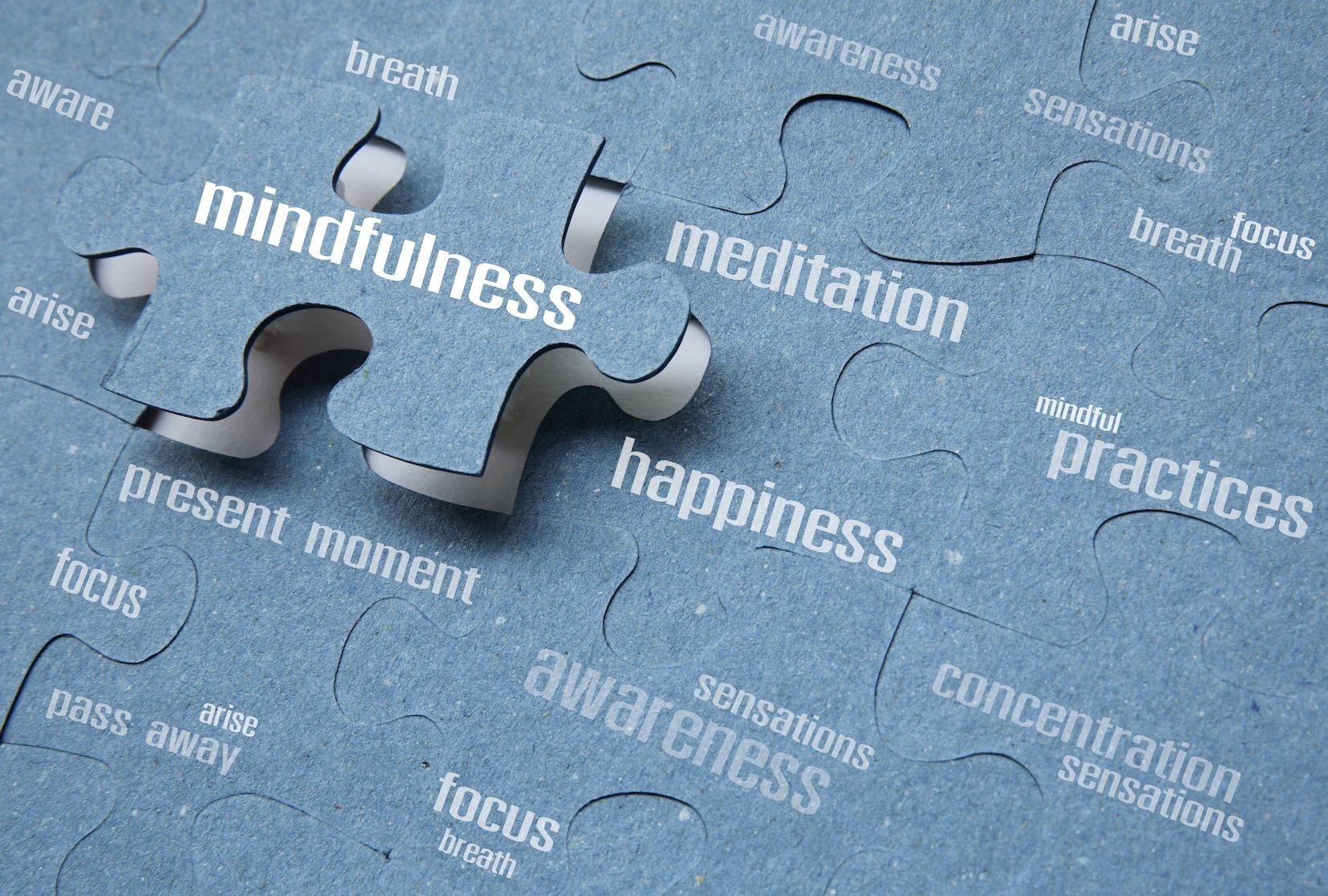The uncertainty of the last couple of years has increased anxiety across the globe. Never before have we been more connected electronically yet seemingly disconnected from ourselves. Adults and children alike put their attention daily on negative social media feeds and news specials that often intensify this hypertension. Numerous people struggle to maintain a work-life balance while stress, burnout, and substance addictions climb. Thus, inner peace can seem unattainable, yet a calmer self is within your reach.
Estimated reading time: 5 minutes
 Through self-compassion, emotional intelligence (EQ), and simple practices, you can learn to soothe yourself no matter what the challenges.
Through self-compassion, emotional intelligence (EQ), and simple practices, you can learn to soothe yourself no matter what the challenges.
First, let’s explore a few brain basics to better understand how experiences can create stress, particularly through how we interpret what happens in our daily life. The amygdala, a small, almond-shaped network of nuclei deep in the brain's limbic system, is responsible for emotional interpretation and responding effectively to situations—for better or for worse.
Keys to Apply Focused Attention for Positive Change
The good news is that we can positively affect the quality of our experiences through greater self-awareness and a better interpretation of the experiences in our lives. We can train our attention to regulate emotions. Focused attention is the fulcrum of self-regulation. It holds the power to revolutionize the quality of our lives positively.
In the Journal of Consciousness Studies, Wallace states: “Attention is a most valuable instrument that serves as a telescope through which we select, bring into focus, and magnify the stimuli we experience in our world.” (Wallace, 1999.)
So the more skilled we become at consciously choosing what we put our attention on and being more discerning in the interpretation of our experiences, we can shift our emotions deliberately. Once we practice mindfulness regularly, it becomes a habit that enhances our quality of life. Studies suggest that when we regularly practice meditation or mindfulness practices, these actions impact the amygdala’s response, and we are less likely for our emotions to hijack our logical brain.
Since our survival mechanism (fight, flight, or freeze) is triggered by the interpretation of events, not the actual events, we hold tremendous power in changing how we respond to our current challenges. And therein also lies profound hope.
Video Deep Dive: "Use Your Attention to Change Your Life." 
Learn to regulate your emotions.
One of the most important emotional intelligence skills you can learn is self-regulation. Emotional regulation involves being aware of what you’re feeling and taking action to feel better. Simply taking a step back and noticing how your mind and body react in different situations will provide greater self-awareness. A great beginning to developing the skills needed to regulate one’s emotions and behavior is to answer several questions whenever you feel out of sorts.
- What am I feeling?
(Naming an emotion is calming.) - What experience ignited these feelings?
- Are there any thoughts or beliefs fueling these feelings?
- What is a helpful or effective response?
(For example, take self-calming time, talk to a friend, or solve the problem frustrating you.) - What action do I need to take to feel better?
Answering one or more of these questions will assist you in self-awareness and gaining a greater understanding of your emotions. By treating your feelings like a welcomed guest, you’ll be calmer and begin to promote more inner peace in your life.
Related reading: "How to Find Inner Peace by Resolving Conflicting Emotions."
Plan ahead to avoid rushing.
There is no pleasure in hurrying or feeling the pressure of a looming deadline. Therefore, be more mindful of how you structure your day. For example, allow ample time for travel so you can stop along the way to enjoy nature. Or pull off the road safely and focus on one thing of beauty, like a hawk soaring across a field. Take the sight in thoroughly. Examine it closely, noticing all the details. Focus on the beauty and let it replenish you.
Or, when estimating a timeline for a new project, add a buffer. Once you’ve formulated a plan, add a few hours for unexpected developments, twists, turns, and delays. Give yourself the gift of spaciousness by asserting a low tolerance for hurrying.
This simple shift in how you interact with your life daily will refresh you.
Related reading: “Mindfulness Has No Sense of Hurry.”
Notice when you're stressed and intentionally relax.
One reason we reach burnout is that we ignore the signals our bodies, minds, and emotions give us. Train yourself to notice early on. The minute you sense any tension in your body, stop and consciously relax. When you find yourself pushing to get something done even when you feel fatigued, do a soothing activity—even five to ten minutes will help.
Or when you find yourself stressing or tensing up, stop and take three slow, deep breaths. As you exhale each time, relax your body, beginning with your head, neck, and shoulders. Relax any tension you feel. Build this activity into your daily schedule to help prevent chronic stress.
Learn more about emotional regulation: Practical Skills and Practices to Help You Self-Regulate and Find Inner Peace.
Discover: exercises to destress your brain.

Begin a mindfulness practice.
Mindfulness can be a daily practice or even become a mindset. Many people think a mindfulness practice requires setting aside an hour a day for meditation. Now so.
When we practice self-awareness, we are being mindful. And you can do this exercise in real time, no matter what you’re doing. For instance, instead of allowing your mind to race first thing in the morning by thinking of a dozen things you need to accomplish, try to be fully present.
Mindfully brush your teeth or make your coffee. Be present. Notice the sounds in the room (or quietness). Pay attention to the sounds of the toothbrush on your teeth or the electric grinder as it grinds coffee. Notice the details through all of your senses. Take a mundane activity and bring it alive through awareness.
Introducing this kind of mindfulness into your daily life IS brain training. By intentionally choosing what you put your attention on, you exercise and build greater control of your mind and behavior.
Each time you consciously choose where to put your attention rather than allowing your monkey mind to run the show, you are exercising the mind muscles required for a happier life. You’re strengthening the ability to change habits at will to create a life you love.
Don’t underestimate these suggestions. Even though they are simple, when executed until habitual, they are powerful.
Related reading: “Inner Peace Requires You to Be Present with Self-Compassion
For more EQ skills, consider Heartmanity's Emotional Intelligence online course, which offers practical, straightforward ways to develop your emotional intelligence. Or contact us at Heartmanity today for customized support at support@heartmanity.com.









